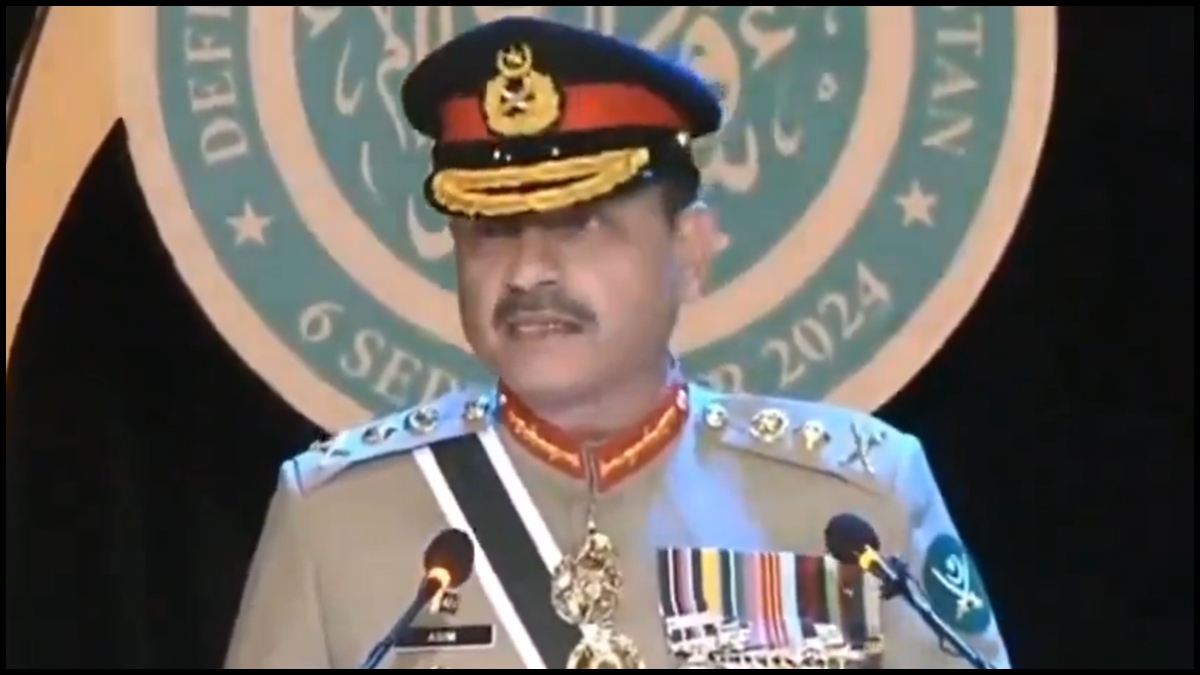Rawalpindi:For the first time in 25 years, the Pakistan Army has publicly admitted its involvement in the 1999 Kargil War. Pakistan Army Chief Asim Munir, while addressing an event to mark the country’s Defence Day, said several soldiers had laid down their lives while fighting in the wars of 1965, 1971 and in Kargil in 1999.
“The Pakistani community is a community of braves who understand the importance of freedom and how to pay for it. Be it 1948, 1965, 1971 or the Kargil war of 1999, thousands of Shuhadas (martyrs) have sacrificed their lives for Pakistan and Islam,” he said during the event in Rawalpindi.
This statement by the military chief is significant as before this, the Pakistan Army had never publicly acknowledged its role in the 1999 Kargil War and had referred to the infiltrators as “Kashmir freedom fighters” or “mujahideen”. This apparent admission has sparked a stir on social media, where netizens shared decades-old posts about Pakistan’s denial of the role in the war.
What happened in 1999?
Soon after the Lahore Declaration was signed between former Indian Prime Minister Atal Bihari Vajpayee and former Pakistani Prime Minister Nawaz Sharif for peace and stability between the two countries in 1999, Pakistani forces crossed the Line of Control (LoC) in May 1999 and infiltrated into Jammu and Kashmir and took over Indian Army posts as part of an operation dubbed ‘Operation Badr’.
Pakistani invaders had occupied the fortified defences overlooking NH 1A in the Drass and Batalik sectors of Kargil in the Ladakh region with the aim of isolating the Indian Army at the Siachen Glacier and cutting the link between Kashmir and Ladakh. The mastermind behind this operation was Pakistan’s military dictator Pervez Musharraf. The Indian Army was initially oblivious to the nefarious conspiracy by Pakistani forces, just after the Lahore Declaration, which gave the latter a tactical advantage to force India to come to an agreement on the Kashmir dispute and press for Indian troops to withdraw from Siachen.
However, Pakistan’s bold gamble backfired when the Indian Army eventually got wind of the plot and sent 200,000 Indian troops into the area to drive Pakistan out of the vacated military posts. The mission was codenamed “Operation Vijay” and kicked off the war. It was one of the most difficult conflicts India had ever faced as it was fought at high altitude, with some posts situated at over 18,000 feet.
After two months of fierce fighting between the Indian and Pakistani armies, the war ended in defeat and embarrassment for Pakistan as the war prompted international calls for the Pakistani army to withdraw. Pakistan continued to blame Kashmiri separatists who rebelled under Indian rule in the war but later gave rewards to warriors who fought in it. In India, July 26 came to be known as the “Kargil Vijay Diwas” to symbolize India’s victory over Pakistan in the 1999 war.
“It is our fault”: Nawaz Sharif on Kargil war
In late May, former Pakistani Prime Minister Nawaz Sharif admitted that Islamabad had “violated” an agreement with India signed by him and former Prime Minister Atal Bihari Vajpayee in 1999, in an apparent reference to General Pervez Musharraf’s Kargil misadventure. Nawaz said “it was our fault,” referring to the historic Lahore Declaration.
Nawaz, who was soon deposed by Musharraf, called the Kargil operation a strategic “blunder” by the Pakistani military, which had reportedly refused even to accept the bodies of Pakistani soldiers killed in Kargil. India had always maintained that the war was a ploy by Pakistan to assert its control over Kashmir.
A former Pakistani military officer, retired Lt Gen Shahid Aziz, who headed the ISI’s analysis wing during the conflict, had earlier admitted the army’s involvement in the Kargil war and denied the role of the mujahideen. “The Kargil war with India was a flimsy military plan based on invalid assumptions, launched with little preparation and in total disregard of the regional and international environment,” he wrote in an article in The Nation in 2013.
Disclaimer:
The information contained in this post is for general information purposes only. We make no representations or warranties of any kind, express or implied, about the completeness, accuracy, reliability, suitability or availability with respect to the website or the information, products, services, or related graphics contained on the post for any purpose.
We respect the intellectual property rights of content creators. If you are the owner of any material featured on our website and have concerns about its use, please contact us. We are committed to addressing any copyright issues promptly and will remove any material within 2 days of receiving a request from the rightful owner.

